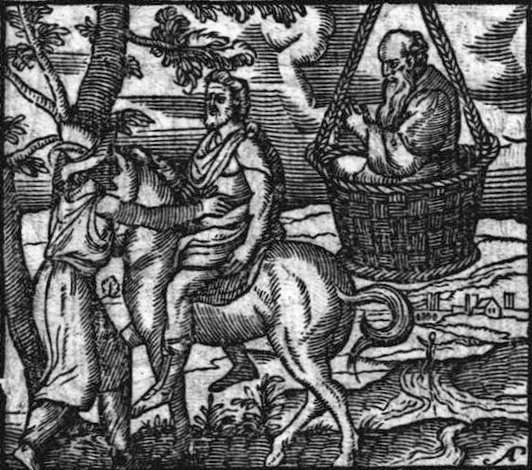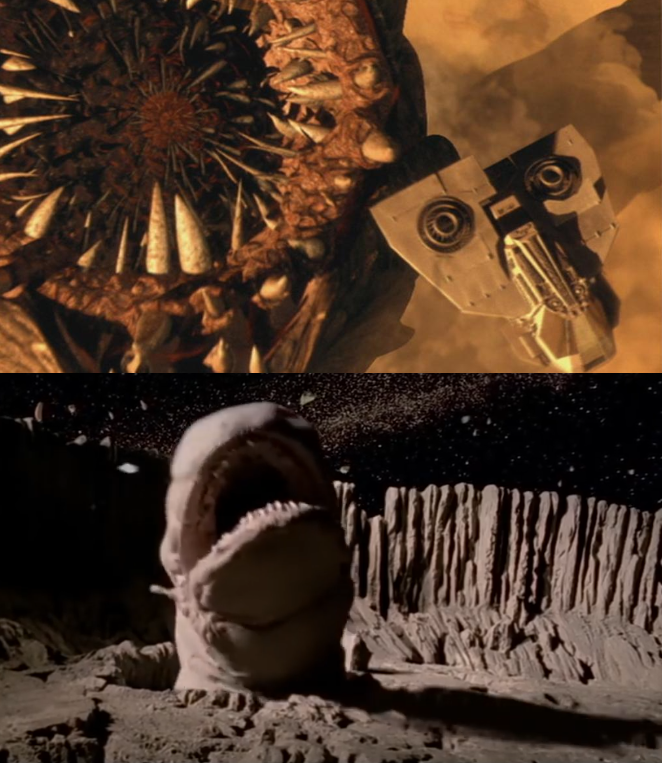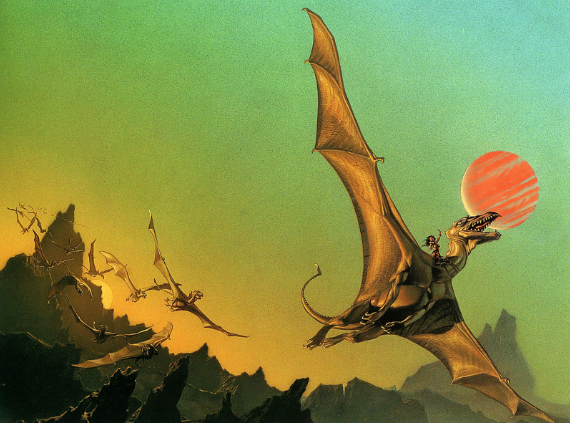
Two post-apocalyptic songs:
293. Nine Inch Nails, “The Beginning of the End” (2007):
294. Leslie Fish, “Better Than Who?” (1989):

Two post-apocalyptic songs:
293. Nine Inch Nails, “The Beginning of the End” (2007):
294. Leslie Fish, “Better Than Who?” (1989):

Seven songs of paranoia and surveillance – some more science-fictional than others, but hey.

286. Louis Armstrong, “’Zat You, Santa Claus?” (1953):
Plus a cover by Buster Poindexter:
287. Alan Parsons Project, “Eye in the Sky” (1982):
288. Judas Priest, “Electric Eye” (1982):
289. Men at Work, “Who Can It Be Now?” (1982):
290. Police, “Every Breath You Take” (1983):
One couple told me ‘Oh we love that song; it was the main song played at our wedding!’ I thought, ‘Well, good luck’. I think the song is very, very sinister and ugly and people have actually misinterpreted it as being a gentle little love song, when it’s quite the opposite. — Sting
291. Rockwell, “Somebody’s Watching Me” (1984):
Note: not Lew Rockwell.
292. Modest Mouse, “3rd Planet” (2000):
[cross-posted at POT]
I’m sure I can’t be the first to notice the ways in which Plato’s Protagoras is framed as a response to Aristophanes’ Clouds, but I’m not aware of any previous discussion of the connections I have in mind.
It’s old news, of course, that many of Plato’s dialogues, including the Protagoras (along with, e.g., the Euthydemus, Gorgias, Hippias Minor, Hippias Major, and Sophist) are devoted to distinguishing Socrates’ approach to inquiry and debate from that of the Sophists, and to that extent may be viewed as responding to what Plato saw as a Socrates/Sophist conflation in the Clouds.

A basket case
But I have in mind a more specific set of dramatic parallels:
| Aristophanes’ Clouds
Before daylight, an agitated Strepsiades rouses Pheidippides from slumber and tries to interest him in going to hear Socrates at the Thinkatorium. (Neph. 1-98) |
Plato’s Protagoras
Before daylight, an agitated Hippocrates rouses Socrates from slumber and tries to interest him in going to hear Protagoras at the salon of Kallias. (Prot. 310b-311a) |
| Strepsiades leads off by complaining about runaway slaves. (Neph. 5-7) |
Hippocrates leads off by complaining about a runaway slave. (Prot. 310c) |
| Pheidippides inquires more precisely who Socrates and his associates are, and expresses concern at the possible malign effect of Socrates’ teaching on his pupils. (Neph. 99-125; cf. 1105-1114) |
Socrates inquires more precisely who Protagoras and his associates are, and expresses concern at the possible malign effect of Protagoras’s teaching on his pupils. (Prot. 311b-314b) |
| Strepsiades proceeds to the Thinkatorium, knocks on the door, and is initially rebuffed on the grounds of not being a pupil; but Strepsiades explains that he has come to be a pupil, and so he is admitted. (Neph. 126-143) |
Socrates and Hippocrates proceed to Kallias’s salon, knock on the door, and are initially rebuffed on the grounds of being more sophists; but Socrates explains that they are not sophists, and so they are admitted. (Prot. 314c-314e) |
| Once within the Thinkatorium, Strepsiades sees Socrates and various other scholars, who are humorously described in mock-epic terms. (Neph. 181-221) |
Once within Kallias’s salon, Socrates sees Protagoras, Hippias, Prodicus, and various other scholars, who are humorously described in mock-epic terms. (Prot. 314e-316a) |
| Socrates, perched in a hanging basket, holds forth on astronomy and physics. (Neph. 218-227) |
Hippias, perched on a high seat, holds forth on astronomy and physics. (Prot. 315c) |
| Strepsiades in the Thinkatorium is depicted as bundled up in blankets. (Neph. 633-790) |
Prodicus in Kallias’s salon is depicted as bundled up in blankets. (Prot. 315d) |
| The dramatic chorus of Clouds enters from the two wings of the stage in response to Socrates’ summons. (Neph. 263-290) |
Protagoras’s followers are described as being like a dramatic chorus splitting into two wings to follow him as he turns. (Prot. 314c-e) |
| Socrates (who in real life never denied believing in the gods) gives a lengthy account of how the gods are not needed to explain natural phenomena. (Neph. 365-426.) |
Protagoras (who in real life did deny believing in the gods) gives a lengthy account invoking the gods to explain moral and social phenomena. (Prot. 320c-328d) |
| Strepsiades wants to learn the expertise that will enable him to get away with wronging others. (Neph. 112-118, 429-434.) |
Protagoras explains how humans learn the expertise that enables them to refrain from wronging one another. (Prot. 320c-328d) |
| The Clouds explain the practical benefits of the instruction that Strepsiades can expect to receive. (Neph. 435-475) |
Protagoras explains the practical benefits of the instruction that Hippocrates can expect to receive. (Prot. 318a-319a) |
| Socrates makes a bunch of humourously picky distinctions about word usage (Neph. 558-692), as will Pheidippides later (Neph. 1178-1184). |
Prodicus makes a bunch of humourously picky distinctions about word usage (Prot.337a-c), which Socrates subsequently parodies (e.g., at Prot. 341a-b and 358a-b). |
| Strepsiades is described as being too forgetful to be able to respond appropriately to Socrates. (Neph. 129-130, 783-790) |
Socrates is described as being too forgetful to be able to respond appropriately to Protagoras. (Prot. 334c-d) |
| Just Argument’s long speech in defense of conventional morality (Neph. 961-1023) is countered by an equally long, humourously sophistical speech on virtue by Unjust Argument. (Neph. 1036-1082) |
Protagoras’s long speech in defense of conventional morality (Prot. 320c-328d) is countered by an equally long, humourously sophistical speech on virtue by Socrates. (Prot. 342a-347a) |
| Pheidippides offers a plainly sophistical interpretation of Solon’s wording. (Neph. 1185-1200) |
Socrates offers a plainly sophistical interpretation of Simonides’ wording. (Prot. (340b-347a) |
| The debate ends with Just Argument reluctantly deciding to switch sides. (Neph. 1101-1104) |
The discussion ends with Socrates pointing out that he and Protagoras have inadvertently switched sides. (Prot. 361a-c) |
Two further points:
1. Why does Plato choose this otherwise unattested Hippocrates as Socrates’ initial interlocutor, if not because he has an aristocratically “horsey” name, and in the Clouds Strepsiades comments explicitly (Neph. 60-66) on the meaning and origin of his initial interlocutor Pheidippides’ likewise “horsey” name? (And Socrates in the Protagoras likewise comments (Prot. 311b) on the significance of Hippocrates’ name, though in connection with its being shared with the more famous medical writer Hippocrates rather than in connection with its equine connotation.)
2. Kallias’s porter, overhearing Socrates’ conversation through the door, mistakes him for a sophist (Prot. 314c-e). This is significant, because it parallels the way that, from Plato’s standpoint, anyone who takes Aristophanes’ portrayal of Socrates at face value (possibly including Aristophanes himself) is in effect taking Socrates to be a sophist on the basis of overhearing him through a closed door, i.e., on the basis of inadequate evidence. And Plato puts such people in their place by making the porter who embodies this error, not only a slave but a eunuch.
P.S. – For what it’s worth, there are also a few interesting parallels between Plato’s Protagoras and his Crito (which, while taking place later, may well have been written earlier):

Two songs about angry cyborgs:
284. Fear Factory, “H-K (Hunter-Killer)” (1995):
285. Symphony X, “Dehumanized” (2011):

Four songs about space travel:
280. Sarah Brightman and Hot Gossip, “I Lost My Heart to a Starship Trooper” (1978):
Yes, that Sarah Brightman. Yes, this exists. In two versions!
This song references Flash Gordon, Darth Vader, droids, Close Encounters of the Third Kind, Starfleet, the Federation, and of course Heinlein’s Starship Troopers – plus the opening notes are borrowed from Also Sprach Zarathustra. It’s like hyper-70s disco filk!
A somewhat more elaborate version:
Incidentally, the notes of “One night in Bangkok and the world’s your oyster” (just that line, not the whole song) seem to be borrowed from this:
One night in Bangkok and the world’s your oyster ….
I lost my heart to a star ship trooper ….
281. Harry Nilsson, “Spaceman” (1972):
282. Lorraine Bowen’s “Space” (2001):
283. Kesha, “Spaceship” (2017):
While Dune’s influence on subsequent science-fiction and fantasy works is vast, the two franchises on which it’s had the most obvious impact in particular are Star Wars and Game of Thrones / Song of Ice and Fire.
Of course SPOILERS for all three series:
Star Wars parallels:


Depriving the giant worm of its tasty flying snack.
Game of Thrones / Song of Ice and Fire parallels:

(Of course another influence on Game of Thrones is Anne McCaffrey’s Dragonrider series. A female protagonist who learns how to ride dragons is the most obvious parallel, but we’ve also got political intrigue in a quasi-feudal but non-Earth setting, and a cyclically recurring existential threat to which dragonfire plus an ancient order of guardsmen are the crucial antidote, but it’s been so long since the threat last manifested that most people dismiss it as a myth.)
